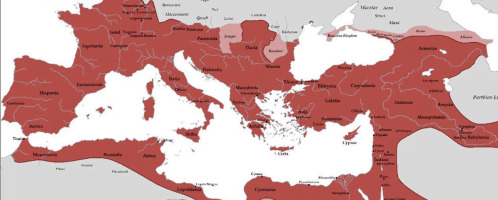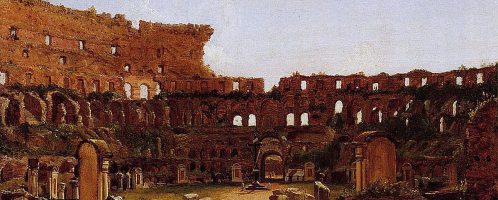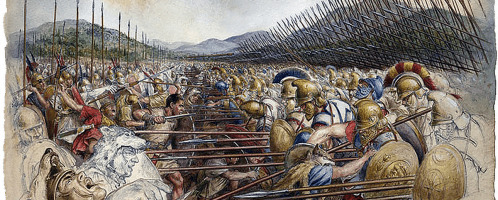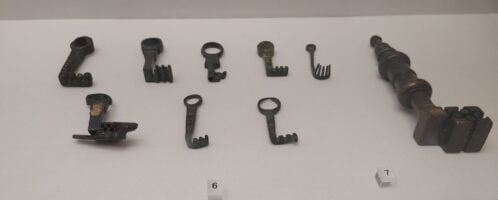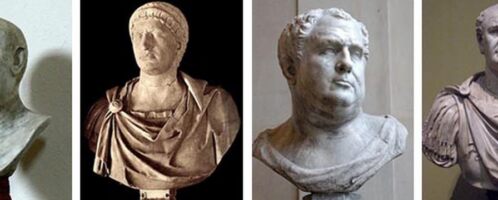Roman Empire at time of its greatest prosperity
Roman Empire, expanding from the 3rd century BCE to the 5th century CE, was one of the few in ancient history that covered such a huge area. It is also sometimes called a world state for this reason. In the first and second centuries, the Romans ruled huge areas around the Mediterranean Sea. This huge state can only be compared with the Chinese state during the Han dynasty (202 BCE 220 CE) and the former state of Emperor Szy-Huang-Ti.

